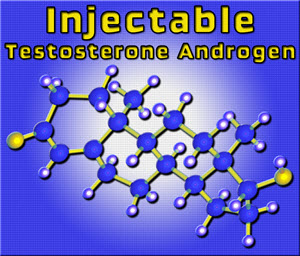Introduction to Acute Kidney Injury
Acute kidney injury (AKI) is a sudden episode of kidney failure or kidney damage that happens within a few hours or a few days. This condition causes waste products to accumulate in the blood, making it hard for the kidneys to keep the right balance of fluids and electrolytes in the body. AKI is a significant health concern among American males, often resulting from complications of other serious illnesses, such as heart failure, liver disease, or severe infections.
The Role of Peptides in Kidney Function
Peptides, which are short chains of amino acids, play a crucial role in various biological processes, including kidney function. In the context of AKI, certain peptides have been identified as potential therapeutic agents due to their ability to modulate inflammation, promote cell repair, and enhance kidney function. For instance, adrenomedullin, a peptide hormone, has been shown to have protective effects on the kidneys by reducing inflammation and improving blood flow.
Peptides and Inflammation in AKI
Inflammation is a key factor in the progression of AKI. Peptides such as ghrelin and its analogs have demonstrated anti-inflammatory properties that can mitigate the severity of kidney injury. Ghrelin, known primarily for its role in appetite regulation, also has the potential to reduce the inflammatory response in the kidneys, thereby aiding in the recovery process from AKI.
Promoting Cell Repair with Peptides
The ability of peptides to promote cell repair is another critical aspect of their therapeutic potential in AKI. Thymosin beta-4, a peptide involved in the regulation of actin, has been shown to enhance the regeneration of kidney cells. This peptide can stimulate the migration and proliferation of cells, which is essential for repairing damaged kidney tissue and restoring kidney function.
Enhancing Kidney Function with Peptides
Certain peptides can directly influence kidney function by improving blood flow and filtration rates. For example, the peptide angiotensin-(1-7) has been found to have beneficial effects on kidney function by counteracting the harmful effects of angiotensin II, a peptide that can constrict blood vessels and impair kidney function. By promoting vasodilation and reducing blood pressure, angiotensin-(1-7) can help maintain adequate kidney perfusion and function.
Clinical Implications and Future Directions
The use of peptides in the management of AKI holds significant promise for American males, who are at a higher risk of developing this condition due to factors such as cardiovascular disease and diabetes. Clinical trials are underway to evaluate the efficacy and safety of peptide-based therapies in AKI. These studies aim to determine the optimal dosing, timing, and combination of peptides that can most effectively improve outcomes in patients with AKI.
Challenges and Considerations
Despite the potential benefits, there are challenges to consider in the use of peptides for AKI. These include the need for precise dosing to avoid side effects, the potential for immune responses to peptide therapies, and the need for further research to fully understand the mechanisms of action of these peptides. Additionally, the cost and accessibility of peptide therapies may pose barriers to their widespread use in clinical practice.
Conclusion
Peptides offer a promising avenue for the treatment of acute kidney injury in American males. By modulating inflammation, promoting cell repair, and enhancing kidney function, peptides can play a crucial role in managing this serious condition. As research progresses, the integration of peptide therapies into clinical practice could significantly improve outcomes for patients with AKI, offering hope for better kidney health and overall well-being.
Contact Us Today For A Free Consultation

- Peptides and Epigenetics: Enhancing Men's Health and Disease Prevention Strategies [Last Updated On: February 20th, 2025] [Originally Added On: February 20th, 2025]
- Exploring the Advancements in Peptide Therapy for Allergy Management in American Males [Last Updated On: February 28th, 2025] [Originally Added On: February 28th, 2025]
- An Overview of Peptides [Last Updated On: March 2nd, 2025] [Originally Added On: March 2nd, 2025]
- Exploring the Role of Bioactive Peptides in Diabetes Management: Therapeutic Potential and Challenges [Last Updated On: March 3rd, 2025] [Originally Added On: March 3rd, 2025]
- Unveiling the Anti-Aging Secrets: The Role of Peptides in Modern Medicine [Last Updated On: March 4th, 2025] [Originally Added On: March 4th, 2025]
- Exploring Peptides as Therapeutic Agents for Male Neurological Disorders [Last Updated On: March 4th, 2025] [Originally Added On: March 4th, 2025]
- Advancements in Peptide-Based Immunotherapy for American Male Cancers [Last Updated On: March 5th, 2025] [Originally Added On: March 5th, 2025]
- Exploring Peptide Therapeutics in Treating Diseases Prevalent Among American Males [Last Updated On: March 6th, 2025] [Originally Added On: March 6th, 2025]
- Unveiling the Potential of Antimicrobial Peptides in Modern Medicine: A Comprehensive Overview [Last Updated On: March 7th, 2025] [Originally Added On: March 7th, 2025]
- The Transformative Power of Peptides in Men's Skincare: A Comprehensive Guide [Last Updated On: March 8th, 2025] [Originally Added On: March 8th, 2025]
- Revolutionizing Male Health: The Power of Biomimetic Peptides in Regenerative Medicine [Last Updated On: March 9th, 2025] [Originally Added On: March 9th, 2025]
- Advancements in Therapeutic Proteins and Peptides: A Focus on Developments and Challenges for American Males [Last Updated On: March 12th, 2025] [Originally Added On: March 12th, 2025]
- Revolutionizing Health: The Role of Peptides in Precision Medicine for American Males [Last Updated On: March 13th, 2025] [Originally Added On: March 13th, 2025]
- Unveiling the Power of Peptides in Wound Healing and Tissue Regeneration [Last Updated On: March 15th, 2025] [Originally Added On: March 15th, 2025]
- Peptides: Revolutionizing Metabolic Health Management for American Males [Last Updated On: March 16th, 2025] [Originally Added On: March 16th, 2025]
- Peptides and Gene Therapy: A New Frontier in Men's Health Treatment [Last Updated On: March 16th, 2025] [Originally Added On: March 16th, 2025]
- Peptides Revolutionize Respiratory Health Management in American Men [Last Updated On: March 18th, 2025] [Originally Added On: March 18th, 2025]
- Peptides: A Targeted Approach to Treating Infections in American Males [Last Updated On: March 18th, 2025] [Originally Added On: March 18th, 2025]
- Peptide Therapies: A New Frontier in Obesity Management for American Males [Last Updated On: March 19th, 2025] [Originally Added On: March 19th, 2025]
- Peptide and Stem Cell Synergy: Revolutionizing Regenerative Medicine for American Males [Last Updated On: March 19th, 2025] [Originally Added On: March 19th, 2025]
- Peptide Therapeutics: Revolutionizing Chronic Disease Management in American Men [Last Updated On: March 19th, 2025] [Originally Added On: March 19th, 2025]
- Peptides Revolutionizing Diagnosis and Drug Delivery for American Males' Health [Last Updated On: March 20th, 2025] [Originally Added On: March 20th, 2025]
- Peptide Vaccines: Progress, Challenges, and Implications for American Males' Health [Last Updated On: March 21st, 2025] [Originally Added On: March 21st, 2025]
- Peptides: A New Frontier in Mental Health Treatment for American Men [Last Updated On: March 21st, 2025] [Originally Added On: March 21st, 2025]
- Peptides in Veterinary Medicine: Diagnostics, Therapeutics, and Regenerative Potential [Last Updated On: March 22nd, 2025] [Originally Added On: March 22nd, 2025]
- Peptide Therapies: A New Frontier in Treating Rheumatic Diseases for American Males [Last Updated On: March 22nd, 2025] [Originally Added On: March 22nd, 2025]
- Peptides Revolutionizing Men's Health: Hormones, Muscle, Aging, and Mental Well-being [Last Updated On: March 22nd, 2025] [Originally Added On: March 22nd, 2025]
- Peptides Revolutionizing Eye Health: A New Frontier for American Males [Last Updated On: March 22nd, 2025] [Originally Added On: March 22nd, 2025]
- Peptides in Sports Medicine: Enhancing Muscle Growth and Recovery for American Males [Last Updated On: March 22nd, 2025] [Originally Added On: March 22nd, 2025]
- Peptide Therapies in Transplant Medicine: Advancements and Impact on American Males [Last Updated On: March 23rd, 2025] [Originally Added On: March 23rd, 2025]
- Peptides and Male Fertility: Exploring Therapeutic Potential and Clinical Applications [Last Updated On: March 23rd, 2025] [Originally Added On: March 23rd, 2025]
- Peptides: A Promising Approach to Managing Liver Disorders in American Males [Last Updated On: March 23rd, 2025] [Originally Added On: March 23rd, 2025]
- Peptide Therapies: Enhancing Bone Health in American Males [Last Updated On: March 24th, 2025] [Originally Added On: March 24th, 2025]
- Peptide Drugs in Pediatrics: Targeted Therapy and Future Prospects [Last Updated On: March 24th, 2025] [Originally Added On: March 24th, 2025]
- Peptides: A Promising New Frontier in Treating Hair Loss in American Males [Last Updated On: March 24th, 2025] [Originally Added On: March 24th, 2025]
- Peptides in Dentistry: Enhancing Oral Health for American Males [Last Updated On: March 24th, 2025] [Originally Added On: March 24th, 2025]
- Peptide-Based Anti-Venom: A Safer Future for American Males at Risk of Snakebites [Last Updated On: March 24th, 2025] [Originally Added On: March 24th, 2025]
- Peptide Radiopharmaceuticals: Revolutionizing Prostate Cancer Management in American Males [Last Updated On: March 25th, 2025] [Originally Added On: March 25th, 2025]
- Peptides: A New Frontier in Epilepsy Treatment for American Males [Last Updated On: March 25th, 2025] [Originally Added On: March 25th, 2025]
- Stem Cells and Peptides: Revolutionizing Men's Health and Regeneration [Last Updated On: March 25th, 2025] [Originally Added On: March 25th, 2025]
- Peptides: Unlocking Health and Performance Benefits for American Males [Last Updated On: March 25th, 2025] [Originally Added On: March 25th, 2025]
- Topic Peptides: A Targeted Approach to Gastrointestinal Disorder Management [Last Updated On: March 25th, 2025] [Originally Added On: March 25th, 2025]
- Peptide-Based Biomarkers Revolutionizing Men's Health Diagnostics [Last Updated On: March 25th, 2025] [Originally Added On: March 25th, 2025]
- Peptide Nanotechnology: Revolutionizing Medicine for American Men's Health [Last Updated On: March 25th, 2025] [Originally Added On: March 25th, 2025]
- Peptide-Enriched Skincare: Enhancing Men's Grooming with Science [Last Updated On: March 25th, 2025] [Originally Added On: March 25th, 2025]
- Peptides: A New Hope for American Men with Neurodegenerative Diseases [Last Updated On: March 25th, 2025] [Originally Added On: March 25th, 2025]
- Peptide-Based Biosensors: Revolutionizing Health Monitoring for American Males [Last Updated On: March 26th, 2025] [Originally Added On: March 26th, 2025]
- Peptides: A New Frontier in Managing Neuropathic Pain for American Men [Last Updated On: March 26th, 2025] [Originally Added On: March 26th, 2025]
- Peptides: A Promising Solution to Antibiotic Resistance in American Males [Last Updated On: March 26th, 2025] [Originally Added On: March 26th, 2025]
- Peptide Therapeutics: A New Hope for American Males with Rare Diseases [Last Updated On: March 26th, 2025] [Originally Added On: March 26th, 2025]
- Peptide-Based HIV Vaccines: Advances and Implications for American Males [Last Updated On: March 26th, 2025] [Originally Added On: March 26th, 2025]
- Peptides and Gut Health: Benefits for American Males [Last Updated On: March 26th, 2025] [Originally Added On: March 26th, 2025]
- Peptides Revolutionizing Endocrinology and Men's Health in America [Last Updated On: March 27th, 2025] [Originally Added On: March 27th, 2025]
- Peptides: A New Frontier in Cardiovascular Disease Prevention for American Males [Last Updated On: March 27th, 2025] [Originally Added On: March 27th, 2025]
- Peptide Bioinformatics: Enhancing Precision Medicine for American Males' Health [Last Updated On: March 27th, 2025] [Originally Added On: March 27th, 2025]
- Peptides Revolutionize Trauma Care for American Males: Healing and Recovery Advances [Last Updated On: March 27th, 2025] [Originally Added On: March 27th, 2025]
- Peptide-Enhanced Photodynamic Therapy: A Targeted Approach for American Males' Health [Last Updated On: March 27th, 2025] [Originally Added On: March 27th, 2025]
- Peptides: A Promising Alternative for Managing Inflammation in American Males [Last Updated On: March 28th, 2025] [Originally Added On: March 28th, 2025]
- Peptides in Men's Health: Cell-Penetrating Advances for Targeted Therapies [Last Updated On: March 28th, 2025] [Originally Added On: March 28th, 2025]
- Bioactive Peptides: Enhancing Men's Health from Cardiovascular to Mental Well-being [Last Updated On: March 28th, 2025] [Originally Added On: March 28th, 2025]
- Peptide Vaccines in Veterinary Medicine: Safety, Efficiency, and Future Prospects [Last Updated On: March 28th, 2025] [Originally Added On: March 28th, 2025]
- Peptide Therapy: Targeting Hematological Disorders in American Males with Topic Peptides [Last Updated On: March 28th, 2025] [Originally Added On: March 28th, 2025]
- Peptide-Based Toxicology: Enhancing Toxin Detection and Mitigation for American Males [Last Updated On: March 28th, 2025] [Originally Added On: March 28th, 2025]
- Peptide-Polymer Composites: Revolutionizing American Male Health Treatments [Last Updated On: March 29th, 2025] [Originally Added On: March 29th, 2025]
- Peptides: A Promising Frontier in Stroke Therapy for American Males [Last Updated On: March 31st, 2025] [Originally Added On: March 31st, 2025]
- Peptide Drug Conjugates: Targeted Therapy Advancements for Men's Health [Last Updated On: April 3rd, 2025] [Originally Added On: April 3rd, 2025]
- Peptides Revolutionize Burn Care: Enhancing Healing and Reducing Scars in American Males [Last Updated On: April 3rd, 2025] [Originally Added On: April 3rd, 2025]
- Peptides: A Promising New Approach to Treat Substance Abuse in American Males [Last Updated On: April 4th, 2025] [Originally Added On: April 4th, 2025]
- Peptides in Geriatric Medicine: Enhancing Health and Vitality in Aging American Men [Last Updated On: April 5th, 2025] [Originally Added On: April 5th, 2025]
- Peptide Therapy: A New Hope for Osteoporosis in American Males [Last Updated On: April 8th, 2025] [Originally Added On: April 8th, 2025]
- Peptide Therapeutics: A New Frontier in Pulmonary Care for American Men [Last Updated On: April 9th, 2025] [Originally Added On: April 9th, 2025]
- Peptide Therapy: A Promising Approach for Autoimmune Diseases in American Males [Last Updated On: April 9th, 2025] [Originally Added On: April 9th, 2025]
- Peptides in Veterinary Dermatology: Promises, Challenges, and the Role of American Male Pet Owners [Last Updated On: April 9th, 2025] [Originally Added On: April 9th, 2025]
- Peptide Therapy Revolutionizes Post-Operative Recovery for American Males [Last Updated On: April 9th, 2025] [Originally Added On: April 9th, 2025]
- Peptide Therapy for Ocular Infections in American Males: Mechanisms and Benefits [Last Updated On: April 9th, 2025] [Originally Added On: April 9th, 2025]
- Peptide Therapies: Targeting Prostate Cancer with Precision in American Males [Last Updated On: April 9th, 2025] [Originally Added On: April 9th, 2025]
- Peptide Therapy: A Promising Future for Treating Depression in American Men [Last Updated On: April 11th, 2025] [Originally Added On: April 11th, 2025]
- Peptides: Key to Fighting COVID-19 in American Males [Last Updated On: April 12th, 2025] [Originally Added On: April 12th, 2025]
- Peptide Therapies: A Targeted Approach to Treating Genetic Disorders in Males [Last Updated On: April 13th, 2025] [Originally Added On: April 13th, 2025]
- Peptides: A New Frontier in Treating Male Infertility in the United States [Last Updated On: April 14th, 2025] [Originally Added On: April 14th, 2025]
Word Count: 573





















